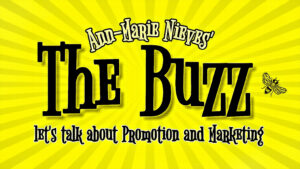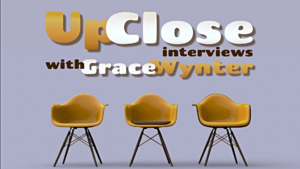Publicity
Greetings, WU family! I’m pleased to be back with the latest in my Up Close series—a series designed to provide insight into the publishing industry from various stakeholders, including authors, agents, publishers, and today’s guest, a media strategist. A veteran of the publishing industry, Linda A. Duggins is the former Senior Director of Publicity at Grand Central Publishing/Hachette Book Group where she led successful national campaigns for authors such as Tayari Jones, Jane Goodall, and the late Octavia E. Butler. In her current role as an Independent Media Strategist, Linda helps authors identify their books’ key selling points and teaches them how to leverage media opportunities to build awareness and boost sales. In today’s Q&A, Linda offers valuable insight into crafting a clear and compelling message about your books and your writing.
GW: Thank you for agreeing to this Q&A. First, can you tell us a bit about your career in publishing as it relates to media and publicity?
LD: There has never been a time that I did not enjoy talking about books. Spreading the word about amazing reads that keep me up at night or make me think well beyond the last page has been an ongoing experience for me. Prior to my publicity role at Grand Central Publishing, as co-founder of the Harlem Book Fair, I spent a considerable amount of time pitching various stories about the book fair, the authors and their books, and information about the various organizations that supported the work around what the book fair entailed. I was that person on the subway in NYC passing out upcoming book event postcards and advanced reader copies to just about anyone who dared to look at me. The organic transition to becoming an in-house book publicist was challenging and very exciting. Getting the media and booksellers to pay close enough attention required strategy, effective people skills, perseverance, timing, and luck. There was plenty of reading, book campaign strategizing, meeting media professionals, book tour planning, and engaging with book club members as well as booksellers and librarians. It’s really a blended affair, with collaboration inside the publishing house as well, with editors, marketers, the creative team, sales, audio, and many others.
GW: What exactly is media training and how does it relate to authors, both self-published and traditionally published?
LD: Media training is a form of communication coaching designed to help an author navigate interactions with the media to effectively convey their message, handle interviews, and manage conversations about various topics including: the author’s backstory, writing career, and book details, just to name a few. With media training, the goal is to help authors learn how to keep the title of their books and the key selling points up front and top of mind during interviews.
Read MoreWhen I first met today’s featured author, I had just started writing (very bad) fiction and was looking for other writers who were less bad at it than I was. I created a Meetup group, set up a meeting date, and waited. On that first day, only one person showed up: Terra Weiss. We’ve been friends ever since. In the almost ten years that have followed, Terra’s paid close attention to the publishing industry and adapted to its changes, all while honing her craft. Now she’s a successful indie author of six full-length novels that have received hundreds of glowing reviews across Amazon and other platforms. (Her novel Wingmom has over 500 reviews to date!) Whether your goal is traditional publishing, indie publishing, or something in between, if you’re interested in writing as a career, Terra’s interview provides a wealth of knowledge, and I’m beyond delighted to introduce her to the WU community today.
GW: Thanks for agreeing to share your writing and publishing experiences with the Writer Unboxed community. Can you tell us what genre you write in and when and why you started writing?
TW: Thank you so much for inviting me to be a guest here at Writer Unboxed. I’ve been reading and learning from your articles for years, and I’m honored to be able to share some of my experiences and hopefully give back. I write romcoms and romantic mysteries, which I started tinkering around with in 2013 when my daughter was a year and a half old. I needed somewhere to channel the creativity that was bottling up inside me because I had no time to pursue creative outlets like I did before my baby was born. Writing during her naps and playtime with Nana not only made me a better mom but also helped me realize that I have a passion for storytelling. I never stopped writing fiction, and now, my daughter is eleven and a half and becoming quite the author herself, despite facing dyslexia.
GW: You have self-published six full-length books to date, with a seventh currently up for preorder. Why did you choose the self-publishing route?
TW: I chose self-publishing for several reasons, the most important one being that I wanted creative control of my books, covers, and marketing. I have an entrepreneurial spirit, and after being in the trenches for two years now, I see firsthand that successful indie authors are hardcore businesspeople. On top of constantly bettering their craft and delivering new books, they’re also hustling on everything else running a business entails, from the endless marketing and social media to the administrative work and the finances. It’s long hours where you sink or swim, and in my case, doggie paddle for an eternally long stretch while learning to become the jack-of-all-trades. Because I thrive in that kind of environment, being an indie author is extremely rewarding to me, but it’s certainly not for everyone.
GW: What are the three most important lessons you’ve learned about publishing in today’s landscape?
TW: It’s a jungle out there.
For real. The old adages that used to be told about self-publishing no longer apply. A popular one was, “You don’t have to follow the rules […]
Read More
Three years ago, in mid-August, my first historical novel debuted in the summer of lockdown. The launch situation was far from ideal, and those of us who were published that summer did the best we could with bookshops closed and no in-person events. When August 2021 rolled around and my second novel was released along with the paperback version of the first, my expectations weren’t high. Another eerily quiet summer, another novel comes out into the world with a whisper.
The summers of 2020, ‘21, and ‘22 were all about book release and promotion, so there was some structure to my writing/author life. It’s late August 2023 as I write this. Things are better now for publishing authors, and though I don’t have a novel in the pipeline, through two launches I’ve developed a community of fellow writers and supportive readers. I’m celebrating friends’ book launches and live events, and sometimes speaking, mentoring, and teaching.
While my first two novels were coming out into the world, I found it tough to begin a new draft. Here, I should qualify that when my manuscript sold in a two-book deal, I had a completed draft of the second and it was a stand-alone sequel. I have real admiration for authors who crank out a book a year. While promoting a recently published book, I needed to keep that set of characters fresh in my head so I could talk about them when questions were asked (even though all authors answer the same questions multiple times). We hone our sound bites, quips, our interjections of humor, and (especially with historical fiction) we can recall historical dates and events at the drop of a hat. It’s tricky, when you’re interviewed for 45 seconds on live radio and the DJ poses questions like: So, who stars in the movie? The clock is ticking while you hem and haw, trying to remember the names of any under-thirty actors. So I was reluctant to try to bring a new set of characters to life. Plus, the pandemic sucked the creativity from my soul for a while.
For the past year, I’ve been working on a third manuscript on and off. The most recent (fifth) draft is, at present, with an editor. So there’s that waiting-to-hear-comments time, which I am now really good at enduring, as well as the sense of relief that comes with completing specific goals. The fine-tuning of this novel has been slow going, and that’s fine. There’s no deadline. I’m surprised by how nice I’ve been about it—to myself, I mean. I’ve felt fortunate that I’ve been able to move at my own pace with this project. While I work well under the pressure of a deadline, I know now that I couldn’t have written this book in one year. The story needed time to germinate and develop. I like to leave room for historical research to shape my plot, and for my characters to surprise me. Don’t get me wrong, I do still feel a strong drive to get this novel to the finish line. I’ve learned—with no deadline—what my own writing process is, and also, that I need to trust it. That’s worth something, isn’t it?
When asked to choose, I’ve considered myself a hybrid Plotter/Pantser. […]
Read More
I’ve heard many blanket statements from clients and those shopping for PR and marketing services in the past 25 years:
One that sticks out more recently, is that radio provides no value. The medium is dead they declare; only podcasts really matter.
After having lunch last week with my colleague and friend Terry Cater, co-owner of Playback Producers, a publicity production company for authors, publicists & podcasters, it seemed a good time to address the truth about radio and podcasts with someone in the trenches.
I’ve heard many a time from clients that radio is dead and podcasts are it. In the same breath, clients ask to be on NPR and a good number believe they are a perfect fit for Glennon Doyle’s podcast We Can Do Hard Things? Unpack this for us, Terry.
Radio is alive and kicking! In fact, 8 in 10 Americans ages 12 and older listen to radio – that’s according to recent data released by Nielson Media Research. Your question comes in a timely fashion – August 20th is National Radio Day. There’s a reason this medium gets an entire day of awareness. Radio has survived the test of time and is often considered a trustworthy source of information. While podcasts seem to be all the rage, there are varying degrees of the quality and listenership of the shows. A podcast can be less established with a modest listenership, less regulated, and harder to find stats (especially when it comes time to figuring out your ROI).
With that said, podcasts are great when targeting a certain audience including fiction readers. Podcasts listeners also tend to be book buyers. In general, for a successful PR campaign, I recommend securing both radio and podcasts interviews to promote your book. Radio interviews will get you conversations with hosts who have a reliable audience and established metrics. Podcast interviews are great if you have a target market. Don’t underestimate the power of radio and be specific when going after podcasts.
Who is your ideal client?
Playback Producers’ ideal client is an author who is open to an honest discussion about the interviews we can score and the PR campaign we can produce for you. While we know everyone would like to be on a top show like NPR All Things Considered or Glennon’s podcast, we want a client who will listen to our candid advice on the number and type of shows we can book. This is because not everyone will get interviewed on those coveted shows. It’s always our goal to get you the most exposure possible, but we want to manage your expectations. Playback’s been doing this for almost 20 years, so we can help steer you in the right and fruitful direction.
Read More













